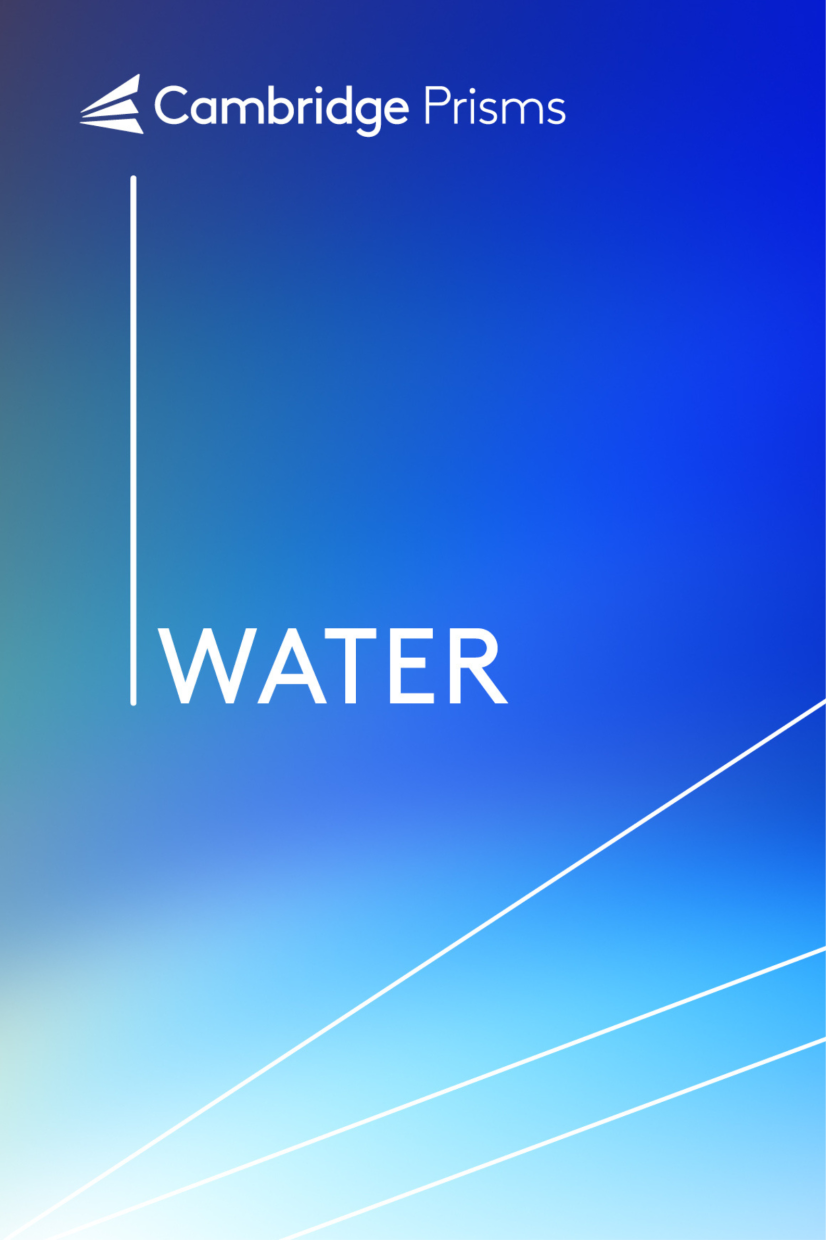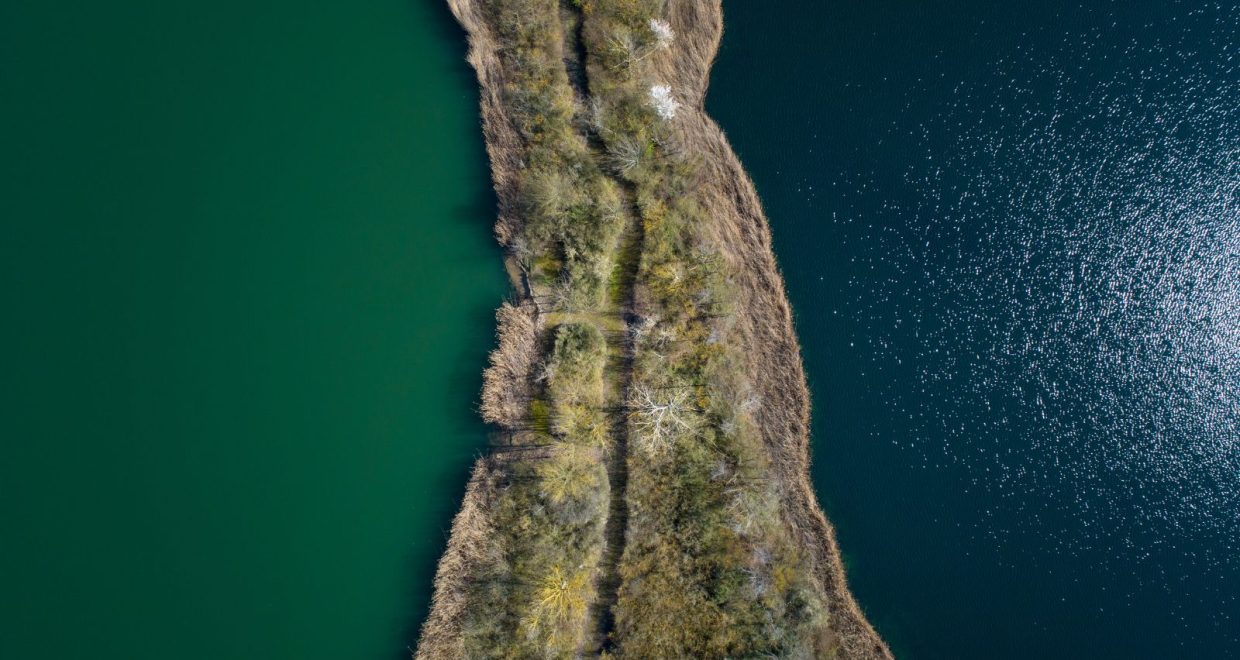Water – the new oil
Richard Fenner, Editor-in-Chief of Cambridge Prisms: Water, explains why a multi-disciplinary approach is crucial to meet human needs and maintain healthy ecosystems
Ensuring water security, which is threatened by the twin threats of climate change and a growing population, is one of the biggest challenges of our time. That is the stark warning from Richard Fenner, Emeritus Professor at Cambridge University, and Editor-in-Chief of Cambridge Prisms: Water.
These threats are compounded by the uneven distribution of freshwater resources across the globe, where many suffer from lack of access to safe water and adequate sanitation – particularly in the global South.
Richard graduated from Newcastle University, where much of his degree was related to the area of Public Health Engineering – dealing with water resources, water supply and wastewater collection and treatment. Following a spell in industry, Richard entered academia and completed PhD on groundwater infiltration into foul sewers, joining Cambridge University Engineering Department in 2002 and leading the MPhil in Engineering for Sustainable Development for 18 years until 2020.
His research interests have focussed on water, sanitation and sustainability issues, with particular interests in urban flood resilience, water industry asset maintenance and rehabilitation, and water and sanitation in Africa and South-East Asia.
Richard says: “Water is such an important resource. On one hand it is essential for the maintenance of healthy ecosystems and sustaining life (we can only live for a very short time without it). At the same time it is a critical hazard when there is too much (during floods) or too little (during droughts) in a given place, potentially causing the destruction of property and threatening life. When contaminated with pathogens from wastewater it can carry and rapidly transmit disease.
Pathways to implementing research
The global distribution of freshwater is uneven, and the problems this creates are likely to get worse due to the uncertainties related to climate change. Richard continues: “It has been described as the ‘new oil’, with potential conflicts arising out of disputed access to scarce water resources. Much of the world still does not have access to adequate safe water supplies or basic sanitation facilities, so there is much still to be done.”

Cambridge Prisms: Water is intended to provide a bridge between academia, industry and policy makers, and to be relevant to each of their needs. The themes of the journal will be grouped under six broad headings: Natural Systems and Resources; Extremes and Hazards; Needs and Services; Responses and Interventions; People and Policies; and Hydroinformatics.
Richard continues: “A key aspect of the journal is to provide a platform that bridges the gap between academic research and all aspects of the management of water in practice. It will not only publish the latest development in water research but also explore the pathways by which this research can be implemented, as well as reporting on the actual experiences of implementing research solutions across the global water industry. It will highlight calls for new investigations from water managers to provide the urgent answers to current water-related problems.”
The topics will be interlinked, and Richard explains that the broad themes should not be viewed as separate – although they may attract specialists from a range of scientific disciplines: “The journal is therefore naturally multidisciplinary, bringing together world-leading experts in their respective fields (such as from engineering, natural science, economics and the social sciences). The overarching requirement is to ensure we have adequate water for meeting both human needs and those of the natural world in maintaining healthy ecosystems, and effectively managing the competition for water across such a diversity of needs.”
A need for an integrated approach
Ensuring water security depends both on drawing lessons from the past and taking advantage of the huge array of technologies now available – as well as ensuring that governments and other global institutions make decisions based on reliable and adequate information, says Richard: “In some ways we seem to have gone full circle, with big steps made to clean up UK rivers such as the Thames – but we now hear of almost daily sewage pollution incidents in our rivers and on our beaches. This shows how important it is to continue to manage effectively how we handle water and wastewater if we are to protect the achievements made in the past.
“One of the big advances over my career has been in the growing capability of hydraulic models made possible by the availability of increasing computer power. We now stand at a crossroads over how to take this even further through the advances in AI and its application to water management, ranging from real-time control of engineered assets to emergency responses to catchment management.”
Like many resources, Richard explains, water has often been managed independently of other resources such as energy and land – but these are all inextricably linked where decisions in one sector can have profound impacts on the other: “A more integrated approach is needed. There are lots of trade-offs that have to be considered here, including the hydropolitics involved in transboundary cooperation.”
Having recently retired from his academic job, Richard will no doubt have more time to follow his passions: hiking, country pubs, Formula 1 and Newcastle United Football Club. He remains involved in a number of research projects looking at the water-energy-land nexus across Europe and, of course, will be able to devote more time to his role at Cambridge Prisms: Water. Despite the enormous and complex challenges ahead, Richard declares that he remains an optimist: “I believe we can always do things better in the future than we have done in the past. Policies need to continually evolve and adapt (as, indeed, does our water infrastructure) to changing constraints and conditions. The issue is ensuring that flexibility is embraced, so that we are continually prepared to evolve and adapt our solutions as new concerns arise.”







Stop selling the ocean to overseas, America needs water.